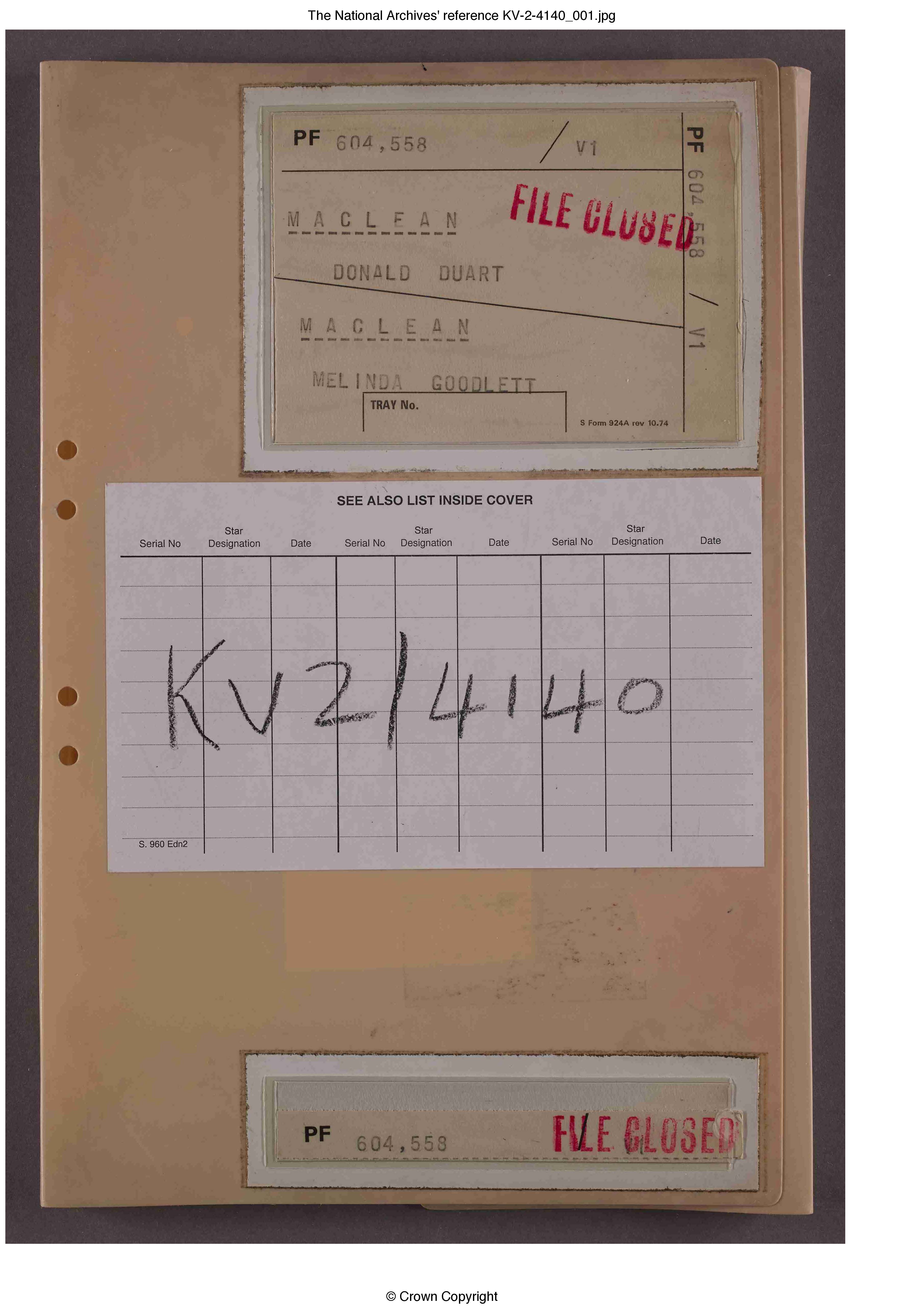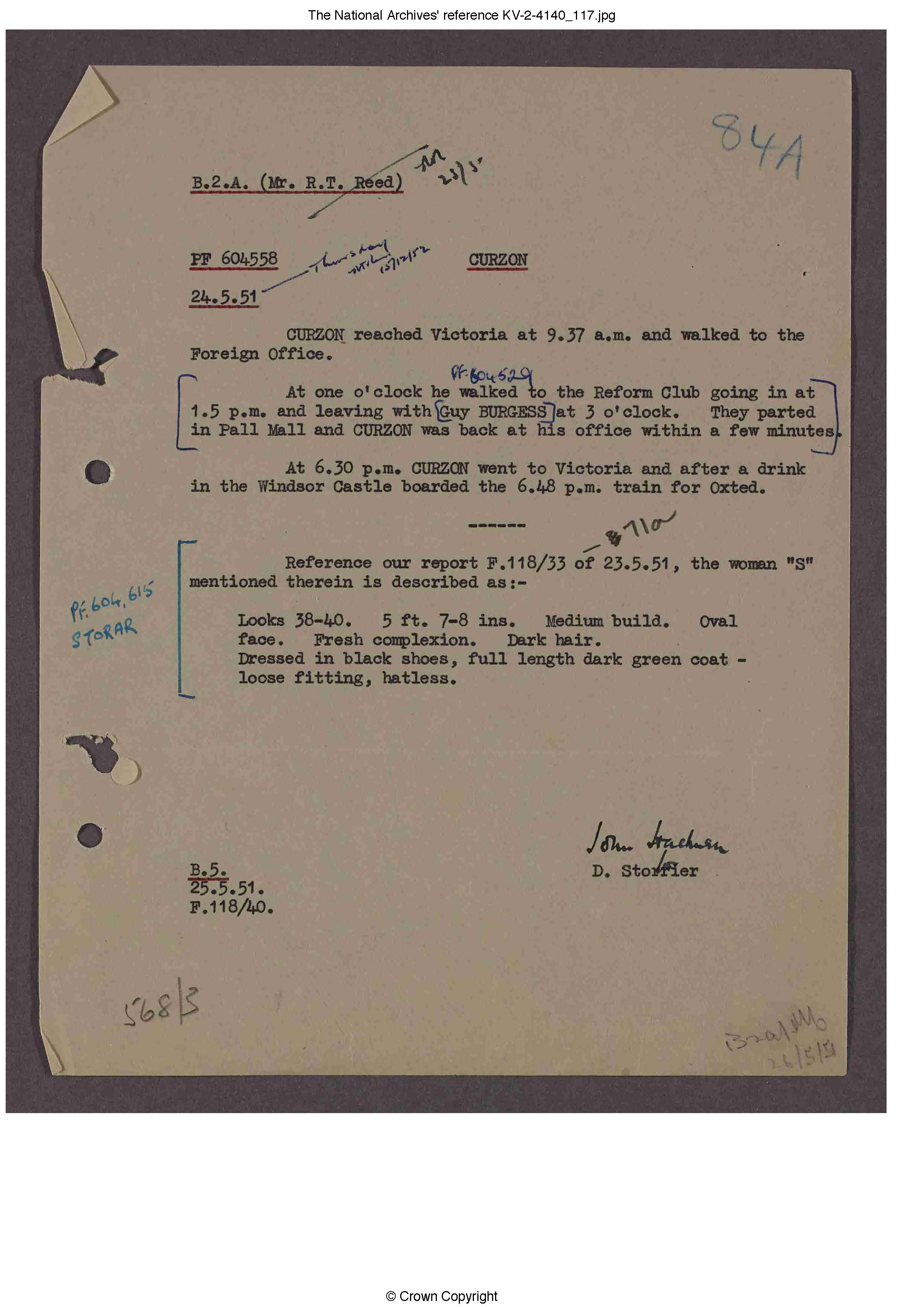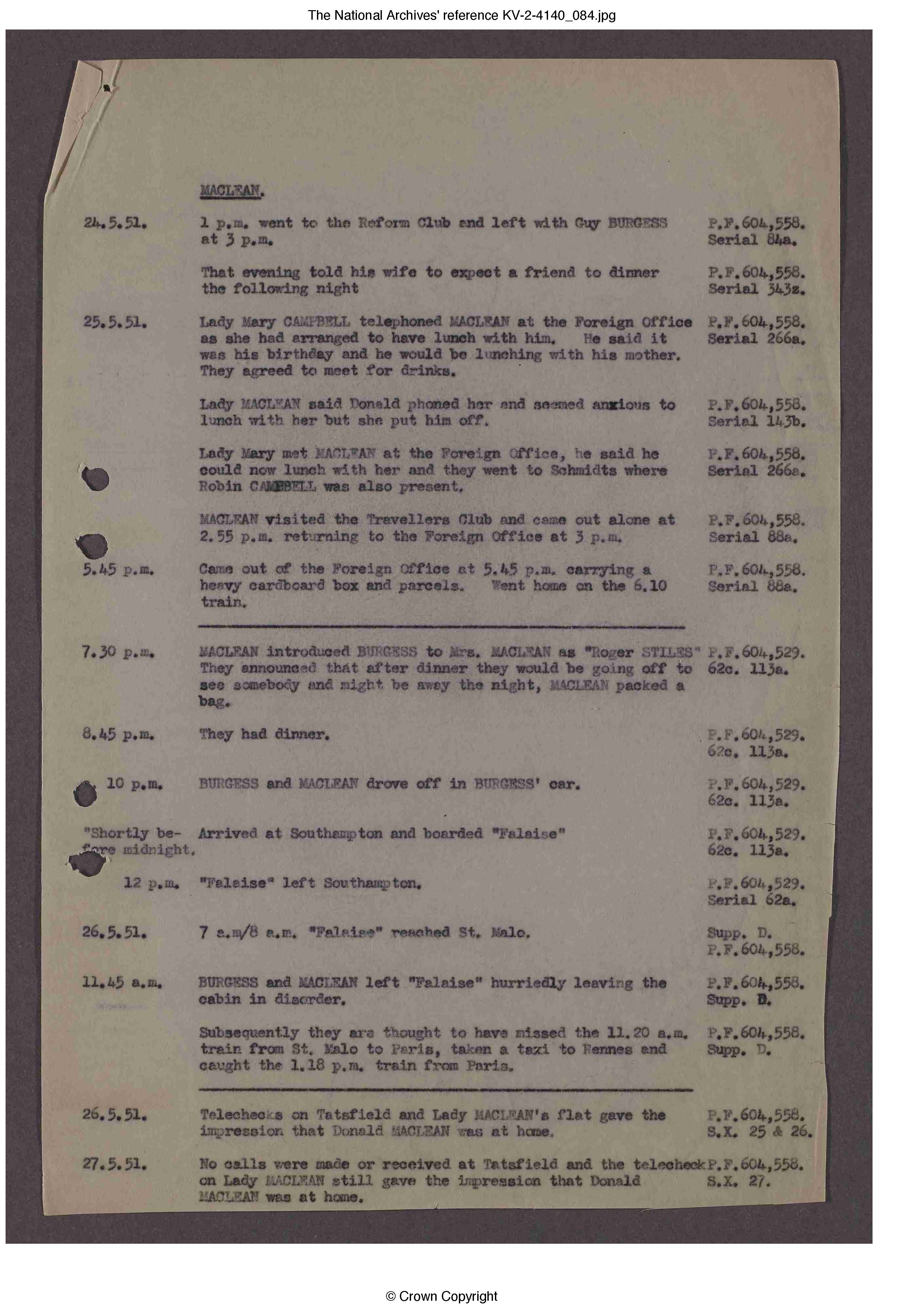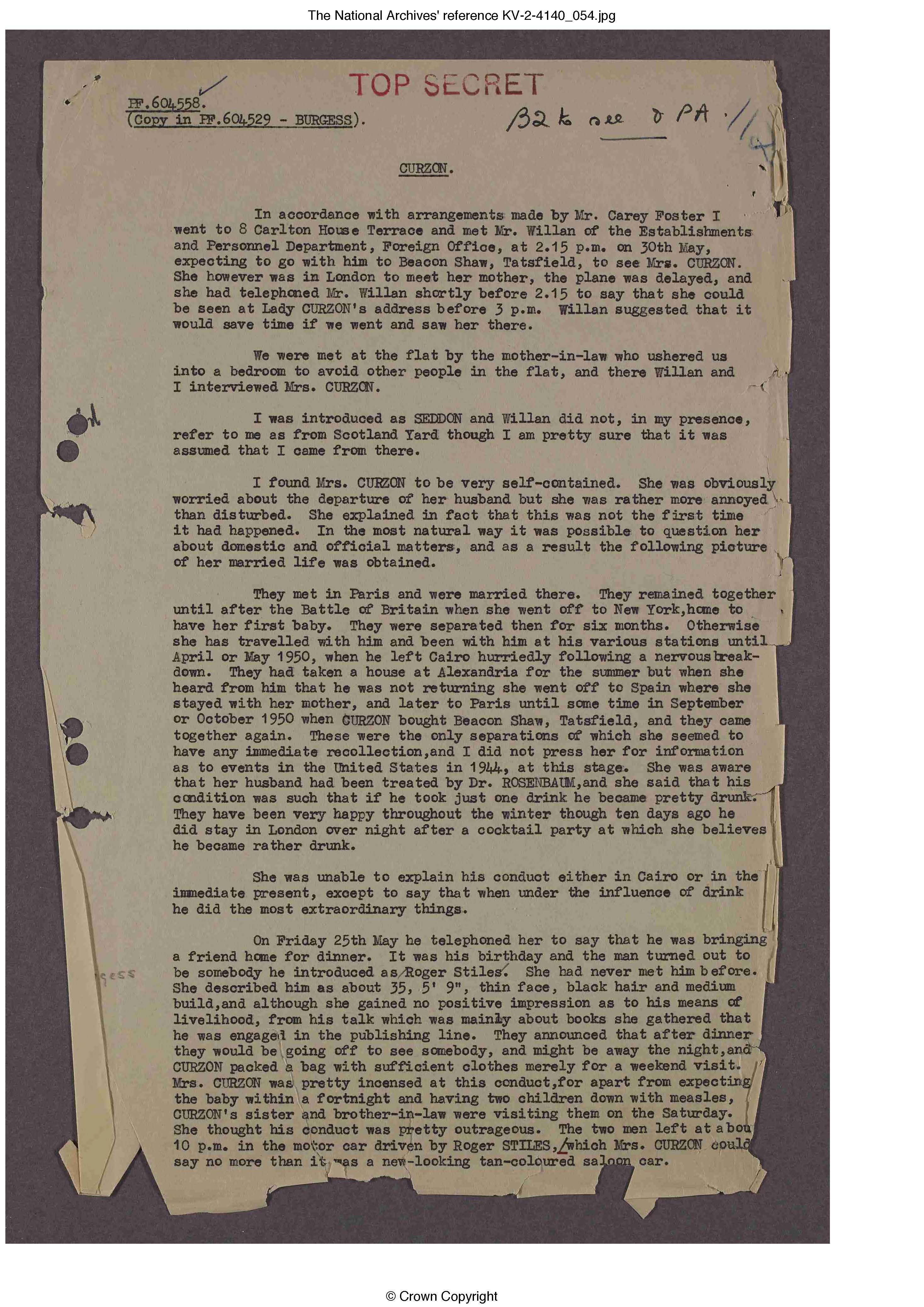- Home |
- Search Results |
- The MI5 case files that inspired A Spy Named Orphan
When I heard that the MI5 and Foreign Office files on Donald Maclean were going to be declassified, years after they should have been, I was intrigued as to what they might contain that had held up their release, and also realised that here was a major figure who had been lurking in the background of my life who had not been properly explored. A man who had been a diligent servant to two masters: a respected and hard-working diplomat destined for the lofty heights of his profession, as well as a prodigious spy acclaimed in Moscow Centre; a man driven simultaneously by an intense patriotism and a fervent conscience forged in the factious times in which he lived. A man who helped shape the twentieth century and whose actions still reverberate today. And whom history tore in half in the middle of his life.
The material I saw as I set out on Maclean’s trail was amazing: the search for the spy was triggered by a dazzling piece of code-breaking in America, which is fully explained for the first time in A Spy Named Orphan. It lasted for years and caused a deep mistrust between the British and American intelligence agencies. At times the hunt becomes almost farcical as MI5 and the Foreign Office cannot admit to themselves what becomes more and more obvious to the reader, but it belies a more serious and far-reaching point about Britain’s post-war place in the world, the nature of our establishment, and our relationship with the United States, as well as the West’s handling of Russia that still swirls around us today.
Here are four illuminating documents from the recently declassified MI5 files on Donald Maclean that I came across during my research for A Spy Named Orphan.





As well as the files released into the public domain, I have family connections to Maclean that resonated and gave me an opportunity to look at and use material that otherwise would not have been available. One of my grandfathers was, like Maclean, a convinced Communist who held firm to his beliefs (at some personal cost) throughout his long life and believed to the end that his ideology would eventually prevail to create a more peaceful and equal world. My other grandfather, who features in the book, was a career diplomat who worked with Maclean on some of the West’s most closely guarded secrets, notably atom bomb policy in the terrifying early years of the Cold War; was his boss in his last posting in London; was as stunned as all his colleagues when he saw the evidence that the rising star was the traitor they had been hunting for years; and was the last official to see him on British soil. Both of these grandfathers’ private writings gave me valuable insight into Maclean.
Maclean’s brother Alan, who became a publisher when he was forced to leave the Foreign Office, was a family friend, which enabled me to see not only their sister’s unpublished memoirs, which give a radically different version of the weekend of his defection in particular; but also, just when the book was about to go to proof, access to a box of Alan’s papers stored in a library in Cambridge marked simply ‘Donald’ which contained a cache of private letters and, best of all, an extraordinary document written by Maclean in Moscow not long before his death in which he looked back at his career and his beliefs in a remarkably open and revealing way.